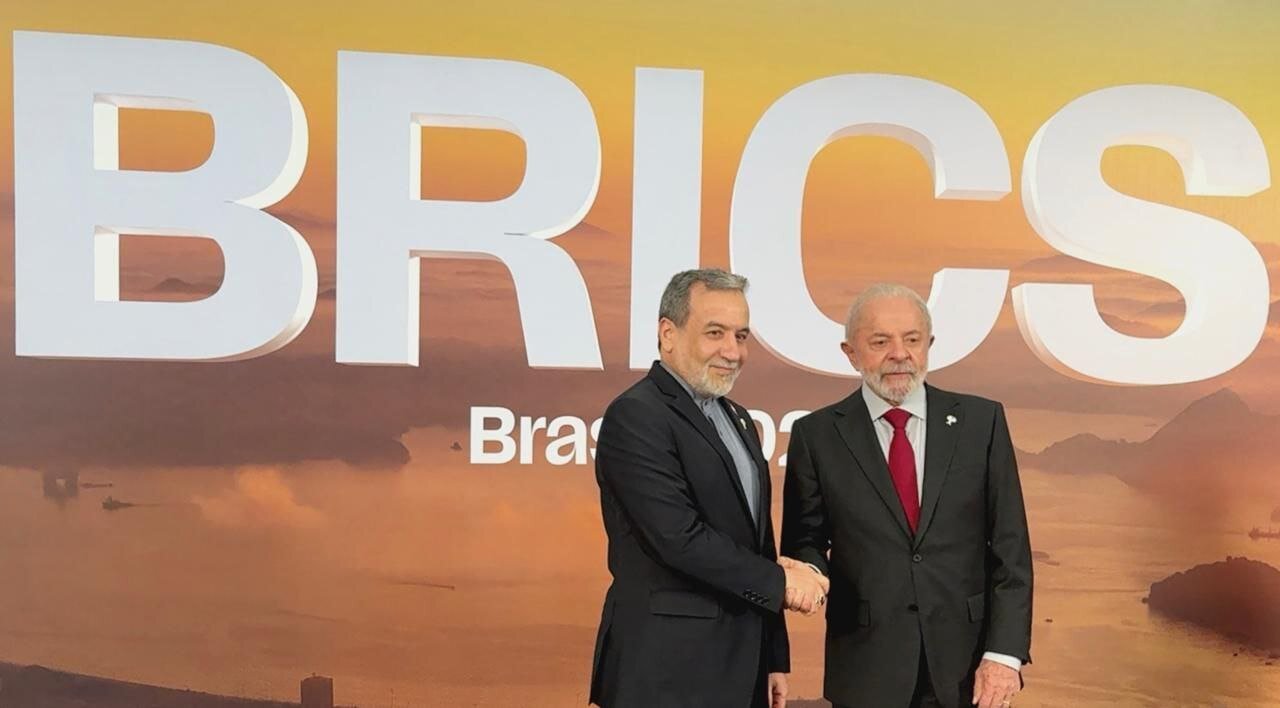Israeli-US attack on Iran violated UN charter: Araghchi at BRICS

TEHRAN – Iranian Foreign Minister Abbas Araghchi strongly condemned the recent Israeli-American military assault against Iran during his remarks at the 17th BRICS Summit, describing it as a blatant violation of the United Nations Charter and an unlawful act of aggression.
Speaking on Sunday, Araghchi stated: “The Israeli regime’s aggression, fully supported by the United States, constitutes a flagrant breach of international law. Over 6,000 civilians were killed or wounded, and Iran’s peaceful nuclear facilities and vital infrastructure suffered considerable damage.”
The foreign minister emphasized that there is no legal justification under international law for targeting nuclear facilities under IAEA safeguards, and warned that such actions undermine the entire non-proliferation regime.
Araghchi hailed the resilience of the Iranian people, who, he said, forced the aggressors to cease their attacks. He reiterated that the Islamic Republic would continue to defend its sovereignty and national interests with full determination.
Calling for urgent international accountability, Araghchi added: “The international community must act to end the impunity of the Israeli regime and hold both the regime and the United States accountable for their crimes and repeated violations of international law.”
In conclusion, the Iranian foreign minister called on BRICS member states to play a more active role in upholding multilateralism and promoting a just international order. “BRICS must assert its role as a defender of international law and the collective voice of the Global South,” he stated.
The 17th BRICS Summit, hosted by Brazilian President Luiz Inacio Lula da Silva, opened in Rio de Janeiro under the theme “Strengthening Global South Cooperation for More Inclusive and Sustainable Governance.” The gathering brings together leaders from 11 member states and strategic partner countries for high-level discussions on global economic reform, collective security, and cooperation among emerging powers.
Araghchi was formally welcomed by Brazilian President at the summit venue in Rio de Janeiro and was seen briefly conferring with his Brazilian counterpart ahead of the opening session.
Chaired by Brazil, this year’s summit—held on July 6–7—comes at a pivotal moment as the BRICS bloc intensifies its campaign for a more balanced international system and greater autonomy for emerging economies.
The summit is also overshadowed by growing dissatisfaction with unilateral U.S. trade policies, especially the tariff regime pushed by the United States President Donald Trump, which BRICS leaders say undermines global economic stability and violates multilateral norms.
Originally formed in 2009 by Brazil, Russia, India, and China, and joined by South Africa in 2010, BRICS is now a bloc of 11 full member countries following a major expansion in 2024. The new members—Iran, Egypt, Ethiopia, Saudi Arabia, the UAE, and Indonesia—reflect the group's widening reach into the Global South.
The group now represents nearly half of the world’s population, 36% of the Earth’s landmass, and around 25% of global GDP.
Over the two-day summit, leaders are discussing pressing issues such as global trade justice, reform of international institutions, artificial intelligence governance, climate change, and global public health. The summit also serves as a platform for member states to advocate for a more balanced, inclusive global order, less reliant on Western-dominated systems.
The summit comes just days before a scheduled announcement by Washington of new tariff hikes, expected to take effect on July 9.
